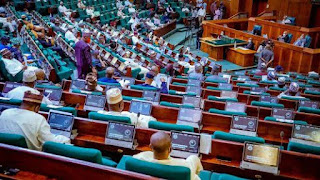Food Security: Reps move to enhance Agricultural innovation in rural areas
BY OLAIDE SHITTULeading the debate on its general principles at Wednesday’s plenary, Kalu emphasized that agriculture remains a vital part of Nigeria’s economy, contributing significantly to rural development, job creation, food security, and national GDP.
He noted that despite its importance, there are still glaring gaps in research and innovation, particularly in rural regions where unique agricultural potentials remain untapped due to the absence of specialized educational institutions.
Kalu explained that the bill is designed to bridge this gap, not just by adding institutions but by investing in untapped potential and empowering those who sustain the nation’s food supply.
He expressed optimism that if the bill becomes law, it would strengthen the agricultural research ecosystem, create more employment and entrepreneurial opportunities, enhance food security, and boost overall economic growth.
“This is not merely to introduce a legislative proposal but to lay before this People’s House a vision—a vision to embed agricultural education into the core of our national development strategy,” Kalu said. “We are not simply adding institutions; we are answering a national call to invest where there is untapped potential, to empower those whose hands feed the nation, and to deepen our national agricultural productivity.”
The bill comprises three main clauses that seek to amend the Third Schedule of the Principal Act to establish the following specialized colleges of agriculture across the six geopolitical zones:
Federal College of Veterinary and Medical Laboratory Technology, Bende, Abia State
Federal College of Land Resources Technology, Takum, Adamawa StateFederal College of Land Resources Technology, Ikole Ekiti, Ekiti State
Federal College of Freshwater Fisheries Technology, Ikot Ekpene, Akwa Ibom State
Federal College of Animal Health and Production Technology, Dange Shuni, Sokoto State
Federal College of Animal Health and Production Technology, Olamaboro, Kogi State
Kalu stated that the passage of the bill would ensure that agricultural innovation is not restricted to urban centers but is equitably distributed nationwide.
After the debate, the bill was put to a voice vote by Speaker Rep. Tajudeen Abbas, who presided over the session. It was passed and referred to the Committee on Agricultural Colleges for further consideration.




